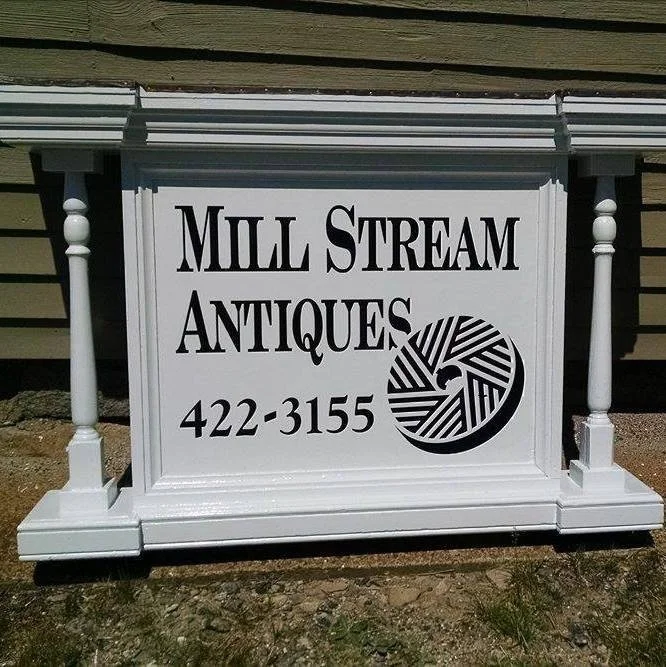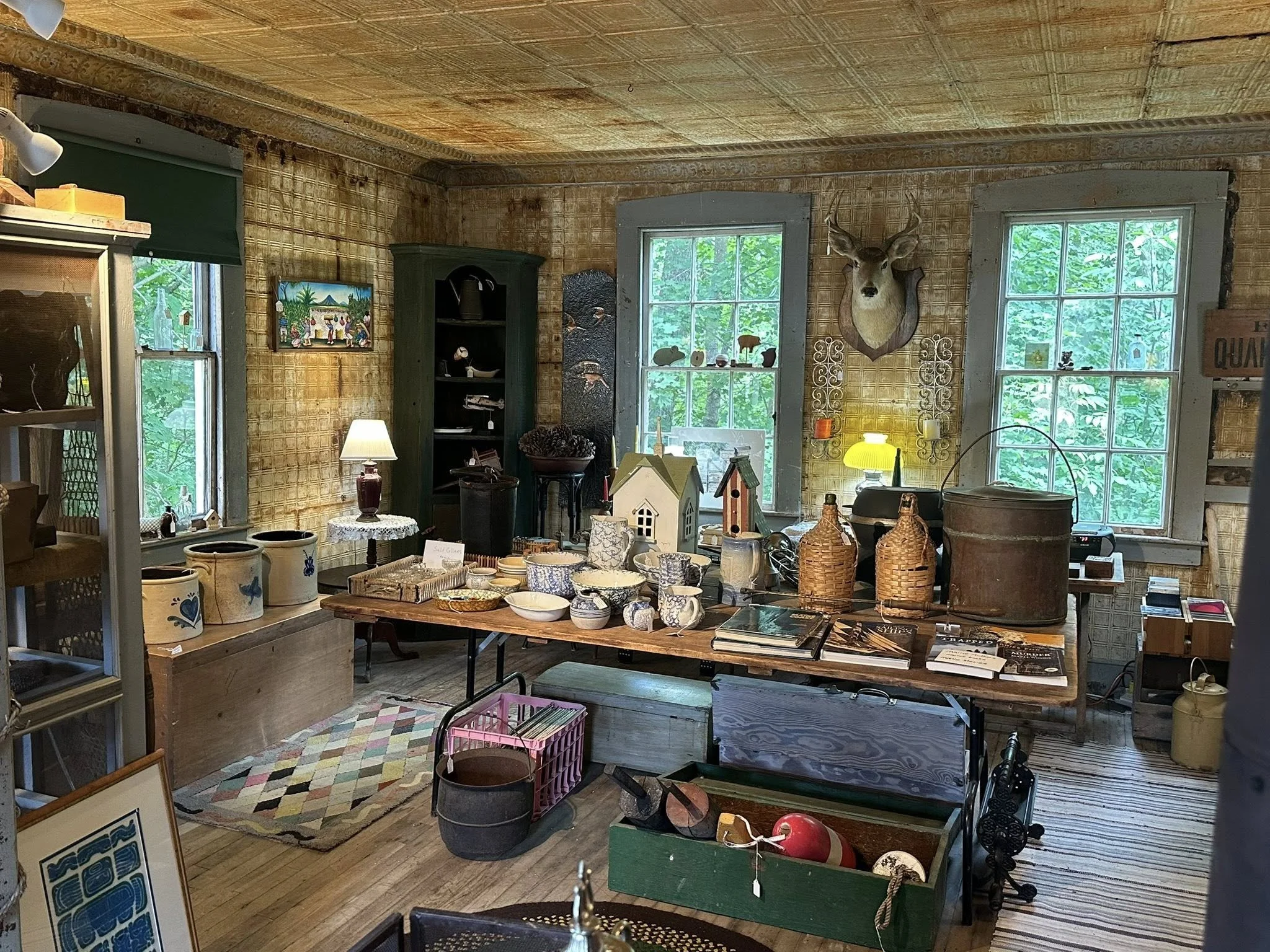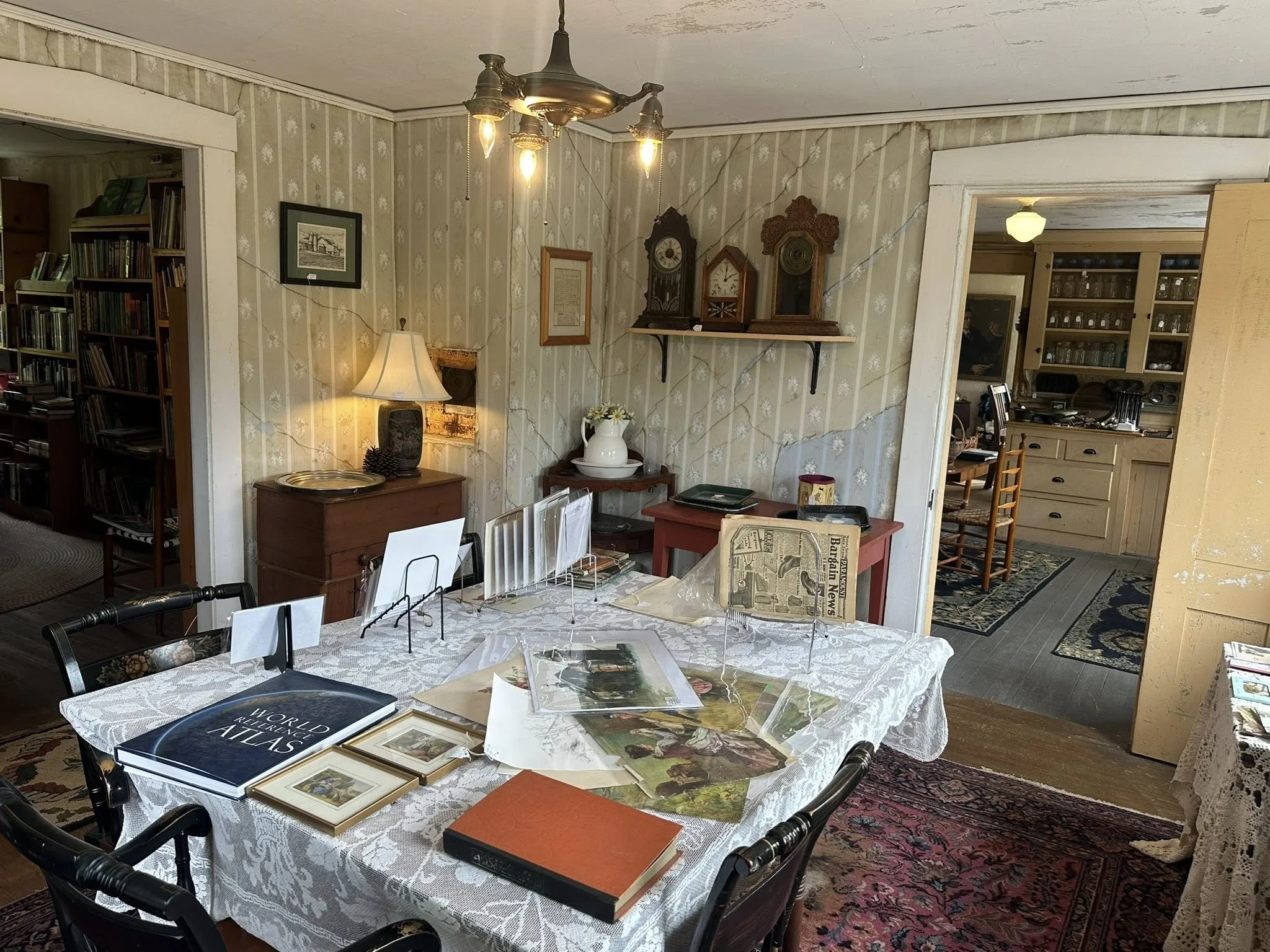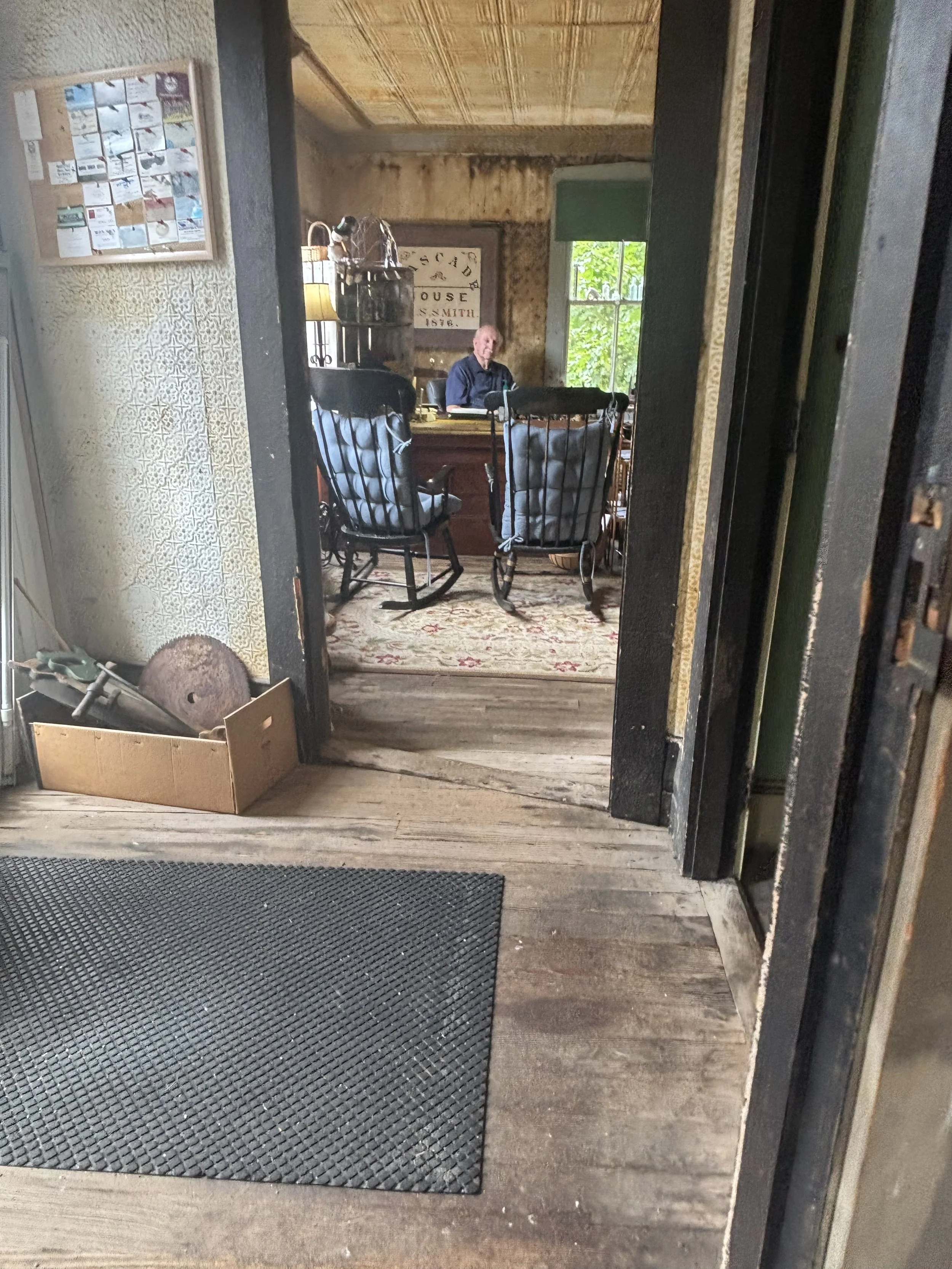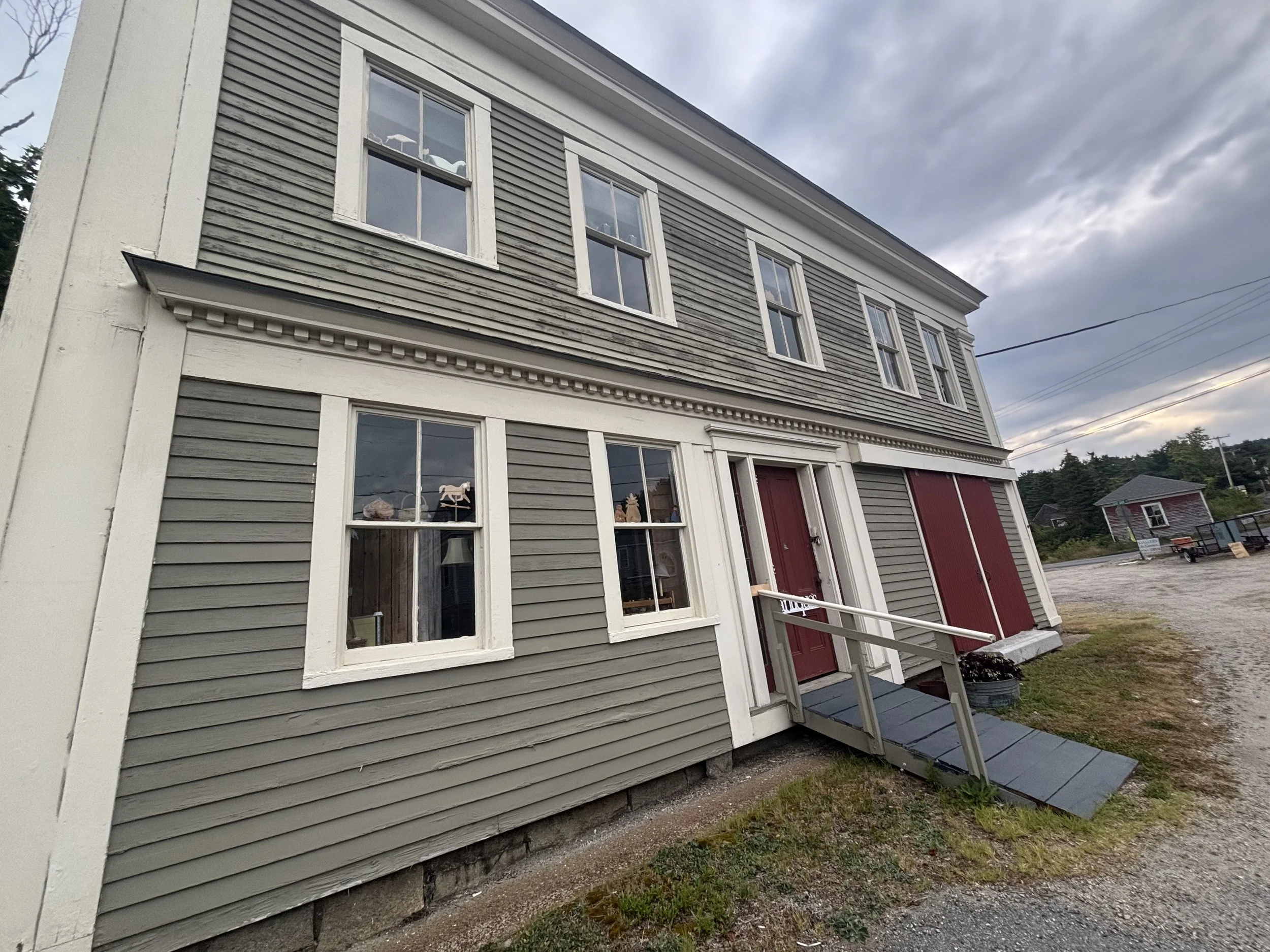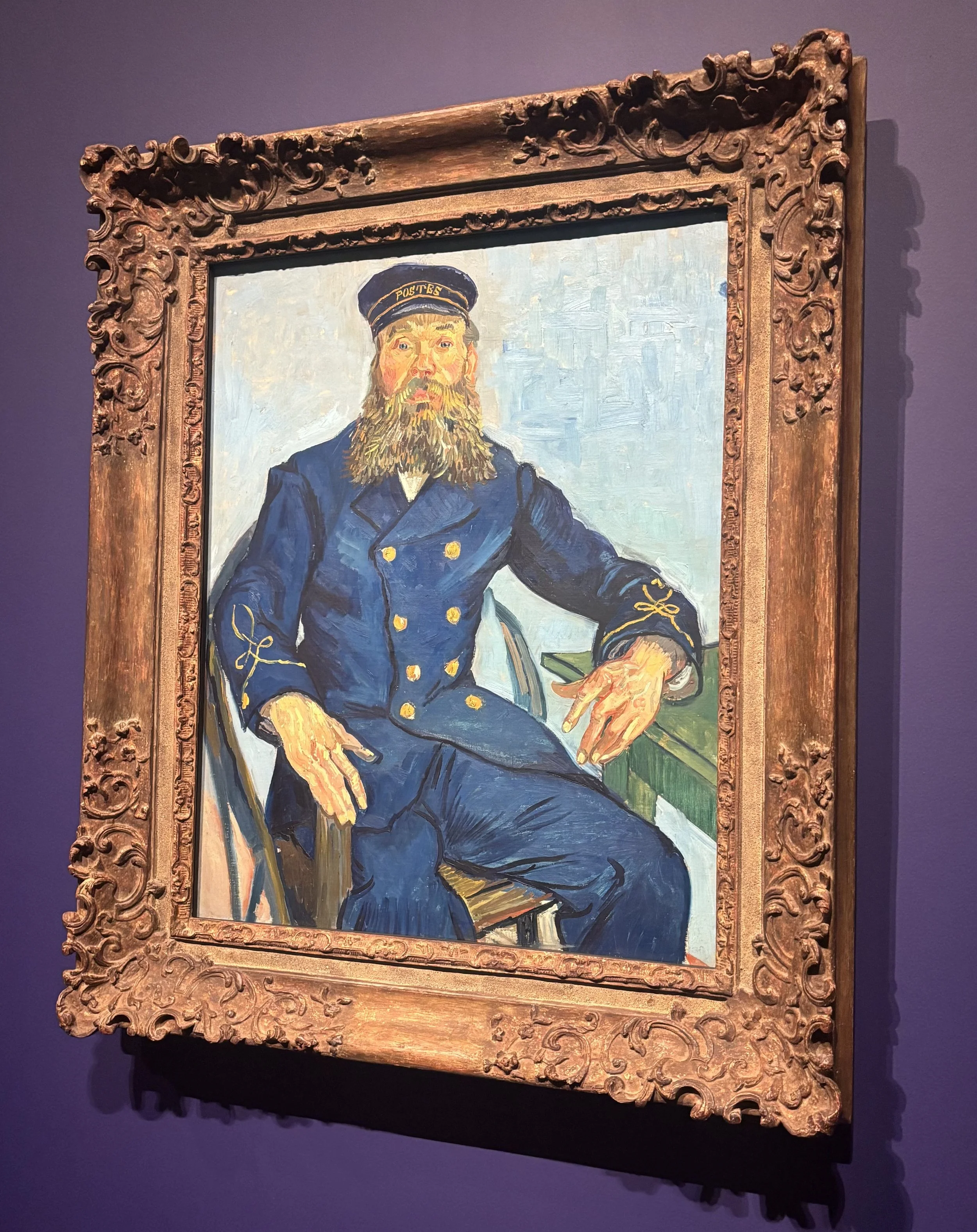Maine: Reflection #2
An unexpected man taught me more than the theology books on my shelf.
As soon as we passed the sign that said “Gently Used Books,” Scott drifted onto the shoulder, glanced in the rear view, and made that wide U-turn.
“I’m guessing you want to stop.”
Used book stores are an unspoken expectation. Every trip we take involves buying a book from a local used book store. I write the story on the front page of each find.
Scott and I talked at length about this trip to Maine and established one rule: “The only plan we have is not to have a plan.”
Go with our gut. Wake up, visit with a cup of coffee and our books, check the weather, and then figure out what we want for the day. So, when we saw the sign, we were simply sticking to the rules 😉.
A local antique store in Sullivan, Maine, is not the same as the vintage-hipster store trend. Wooden boats, hand-carved, old maps and paintings, glass jars and dishware, shoes worn by a flapper in the 20’s, and bowls dating back to the early 1900s. Old stuff. Stories from land, sea, and home attached to every item.
Mill Stream Antiques
We were the only visitors.
An older gentleman leaned back in his chair behind the cluttered check-out desk. His eyes were kind. His presence was meaningful. There was no distraction in his body or mind; he was right there. Right with us. My curiosity swelled; I wanted to hear his story.
“Are you from Maine? How long have you had this shop?”
When he and his wife moved to Maine thirty years prior, they bought this place, “I’m not sure why. We liked it because it was historical and we thought maybe we’d do something with it.” But they didn’t. At least not for a long time. It sat for years until he retired after 50 years in the food industry, rounding out his vocational life in the infamous Maine Blueberry business. Finally, one day he said to his wife, “I’m bored.” And that was the start of Mill Stream Antiques.
“I said I would do it for 2 years, but here I am in my 8th year.”
After our brief exchange (I still didn’t know his name), I wandered…letting my eyes dart every which way and finally made it to the second floor where the books were waiting. 🤓
It was more like a museum.
Some of you know what I mean when I say there is a skill set to locating that one book you are meant to take home, stuffed among many. This is one area I can brag about; I am the master at this skill 🙋🏻♀️. Standing fixed in front of those bookshelves, eyes jumping about in sporadic motion, my body accesses the patience of a neurosurgeon. Scott was stuck in the history section; I was scanning the books about birds, trees, and seasons. And then that magical moment happened, I spotted my book. The Maine Reader, a book of essays written by writers enchanted by everything Maine. It’s that enchantment that hooked me as a kid and has brought me back for years on end.
Sold.
I made my way back down the narrow, creaking staircase and back to the nameless man who continued to hold my curiosity; he was still sitting at his post.
There is something holy about the way a conversation unfolds with a stranger. Both parties willing to be vulnerable. Both people curious and grateful for the authentic connection. No agenda, just two humans sharing themselves.
Unexpected. Holy.
I asked more questions…he shared more.
“My wife can’t make it up to the second floor anymore, and I have been dealing with pancreatic cancer, so we will move to Texas this fall to be with my daughter and live closer to good medical care.”
Doctors who have worked with him have retired and moved. New ones have come along who don’t know him or his health history. From Sullivan, he drives to Bangor to see his doctor. That’s an hour drive.
Additionally, he wants to be with family,
“The longer I live, the more friends pass away. That’s just the way life goes.”
It’s true; I see my parents facing the same grief.
My heart felt sad. Not completely sad. Moving in with his daughter who they have already spent winters with for a number of years, is a good and precious thing. But the ending of things is hard. For all of us.
These losses change us, whether losing people we love, or the closing out of careers and hobbies we can’t sustain anymore. For some, the effect of change is constricting and negative, they morph into a harder, smaller version of themselves. Others awaken and experience new growth. It’s one of two paths: despair, resentment, and anger, or discovery, openness, and simplicity. Soft and present. Not happy all the time, but able to surrender to the limitations.
This man has not stopped living.
Once you talk with someone like this, even for 15 minutes, the drive for more money, the hype of fame, the screaming and falaling of hands over spotting an actor on a street in NYC or L.A. hold no water. The simplicity of sincerity and the hospitality of presence is the Kingdom of God on Earth as it is in Heaven.
This is bread and butter. The stuff of God.
What he shared next has stayed with me, not because his health and his wife’s health matter less, but rather because he taught me a glowing lesson in the power of attunement. He taught me about the deepening of values that comes with years of joy and suffering. He manifested the glory of humility and empathy. A thoughtful, self-reflective man who has lived 83 years is the one I want to teach me about what matters and what doesn’t.
“I bet people around here love your shop,” I smiled.
“You wouldn’t believe it. I have plenty of regulars. One man comes to the shop every week; I am certain he just wants to talk…”
We were both quiet for a few seconds, then he nodded and said…
“I have made the conclusion there are so many lonely people in the world. That’s why I have these two chairs…”
Bob Phillips and his two chairs at Mill Stream Antiques, Sullivan, ME
Attunement. Noticing sadness in people’s eyes. Picking up on the signals of sorrow. Entering into the story behind the story. Not rushing anyone. Not fixing anything. All in. Totally engaged.
Jesus manifested.
“I hear everything but confession from people. it motivates me to keep my shop open.”
Scott was in the car. I checked out and thanked him for the time. For chatting. As I rambled out I felt “oriented.” Lots of emotions and thoughts. Lots of clarity.
“That’s why I have these two chairs…”
I have the sense that the income from those rare and expensive pieces have become the secondary purpose for keeping this shop running so much longer than intended.
We drove away, and I was disappointed that I didn’t ask him more questions or even get his name.
“How late is it open? We can swing back by on the way home, “ Scott offered.
And so we did. And though it was 6:50 and the shop technically closed at 7:00, this is rural Maine, and shops close when the owner is ready to go home. So, I scribbled a note to him. I asked him to email me his name, and I thanked him properly for his generosity of kindness. Folded up and sealed in a ziplock bag, I stuffed it behind the padlock he would unlock in the morning.
If you look closely, you can see my little note stuffed into the lock bar.
“There is not a square inch in the whole domain of human existence over which Christ, who is sovereign over all, does not cry: ‘Mine!’””
I remember having an honest conversation with myself a few times in my 30s and 40s.
“Dawn, do you notice that you are trying to ‘pray right?’”
Seems insignificant, but it felt like an important chiropractic adjustment to my soul.
[I’m not referencing the large canopy of mystery and beauty Jesus reveals in His response to the disciples’ question, “Teach us to pray.” That’s a far longer discussion.]
I organized my words. I spoke to God in a particular way because I thought it would initiate His action, or maybe impress Him. Maybe if I change up the approach. Follow an order. Speak with a careful blueprint of words. It was subtle, but looking back, I had formulated rules of engagement. I was convinced my posture, behavior, and method would influence His response. But formula is the most inhumane way of fostering connection.
I began to understand what was going on at a fundamental level. This way of being in the world, this mechanical approach to God and His Creation, is as inspiring as the SAT. Programmed. Automated. Without wonder and creativity. Formulaic. Anything but human. The reality was, I had been performing. I was giving God a different, and lesser version of who He created me to be and how He wanted to connect with me. To be clear, I didn’t know I had made my faith a matter of equation and method. To be sure, everyone at some point is likely to live a “paint-by-number” kind of way. Keeping everything under control, staying in the lines, making good behavior the measurement and goal, orienting our entire lives around doing things for God in a particular way that would please Him, and “bring Him glory” (this phrase in itself deserves its own blog).
Robotic.
The more robotic I am, the more disembodied I am. And the disembodied ones miss when the presence of God appears in the antique store on Route 1 in rural Maine.
Here’s the underbelly, in my mind, being morally robust and theologically accurate on all accounts were signs of spiritual maturity and a means of security. That’s how I lived. That’s the house I built. Then the winds and rain blasted it all away.
Thank the good Lord.
Gently, but faithfully, He will lead us away from this small cubicle of list-living and into the wide open world where everything is His and He is everywhere.
Now, at mid-life, the gig is up. And though it may sound dramatic, there is no other way to describe it: I have completely changed. The performance and perfection, the idol of influence, the drive for “large scale” impact, the obsession with confession and curbing every sin, the formulas that lead us to think “if we live a certain way, we secure a certain kind of life,” mastering an exact kind of prayer, serving in women’s ministry as a badge of honor, having answers for every challenging question…it was as if I were interviewing for CEO of the Christian Club.
Jesus didn’t die to make us mechanical and calculated.
As Sue Monk Kidd writes in chapter 7 (“Incubating the Darkness”) of her mid-life masterpiece, When the Heart Waits,
Previous ways of thinking about and relating to God no longer suffice. Old religious acts no longer bring the consolation they once did. Former patterns and selves feel like outgrown sweaters (151).
So, when I stood in this ramshackle building in front of this man with kind eyes and his two chairs, my humanness was stirred up with the dust on the floor around me. This trip was an ongoing reminder that I am flesh and blood. Heart and lungs. Arms and legs. Eyes and ears. And THIS is who I am in the great big world God has made. His Kingdom is not a strategy or formula; it is a place with people.
“May your Kingdom come on Earth as it is in Heaven…”
It came unexpectedly at the Mill Stream Antiques; it came as I sat with my binoculars on the cliffs of the rocky coast of Maine, as I stood in the cool air in front of the bay each morning listening to the birds, when my prayers had fewer words and more silence. It came when I had the privilege in Boston of standing in front of the portrait of Joseph Roulin by Vincent Van Gogh, learning of the story of their kindred friendship in the loneliest years of Vincent’s life. A simple postman sent to Vincent by God.*
“I should like to put my appreciation, the love I have for him, into the picture,” Van Gogh wrote in a letter to his brother, Theo.
Eugene has been a seismic influence on me, teaching me to see Heaven here now.
“The life of Christ emerges from within the actual circumstances of our seemingly very unspiritual lives—the daily stuff of ordinariness and accidents and confusion, good days and bad days, taking the humdrum and the catastrophe both in stride...There are miracles aplenty in this life, but most Christian miracles (not all) don’t take the form of interventions but are hidden in circumstances...And all the time a ‘life,’ a ‘Christ-life,’ is being formed that is fully human.”
My husband uses a descriptor now and then for people who help him let go of the ever-so-subtle burden of “doing everything right.”
“He has such a big view of God.”
“Big” can mean all kinds of things. I used to think about His bigness as parting the Red Sea kind of stuff…like when He opened the door to that job, or helped resolve that conflict, or brought about that friendship. To be sure, all of these are big things. But the more I hear Scott tell the stories of these people, “big” means something completely different.
To have a big view of God is to simply live in God’s world where He is entering in all day, every day, bringing His Kingdom to Earth as it is in Heaven. In other words, I am not the one who makes things happen; He is. I am not the designer and instigator, He is. I don’t get him to do something, He is already doing it.
I notice what he is doing and participate.
You don’t have to publish a book, go to seminary, create a thriving online presence with a long list of followers, or lead all your neighbors to a salvation prayer. These are all fine things (sometimes), but two chairs and a willingness to listen is how people meet God; it is how God manifests Himself to a lonely world. He came into the Tabernacle, He came through the prophets, He came through Jesus, and He still comes. He is always coming. He comes to you. He comes through you.
Remember what Paul said, “Your body is the Temple…” If you think this has to do with exercise, or not smoking, you may want to take another look…
The shop owner responded to my email. “Lobster Bob” 😊. Here’s a snippet of it below…
I can’t believe I got to meet Bob Phillips.
On the wall, hanging to the left of where Bob was sitting, hung a photograph of Martha Stewart. It seemed out of place to the point I didn’t even ask about it. When I returned to our Bed and Breakfast, which was right down the road, I asked the Innkeeper if she knew anything about him.
“No, I haven’t been in there. I need to go. Apparently, Martha Stewart heard about his shop and came to visit.”
I feel certain she sat in the rocking chair…
“The only plan we have is not to have a plan.”
Night Café, 1888
“Let’s do the work that is nearest…” Vincent, Letter to Theo.
“Vincent simply walked down the stairs to the Night Café and painted those left behind when all others returned to their homes. That which was nearest for the artist was the forgotten underside of society, always present but seldom noticed. Vincent painted those marginalized people from the heart…Vincent set himself to paint the most ordinary: peasant, postman, housewife, or dusty thistle, empty path, rustic chair, field of windblown wheat…
Vincent admitted that occasionally prostitutes were present in the Night Café, but the theme of the painting had to do with the refuge they and other ‘night prowlers’ were afforded by the ‘well-lighted space’ that welcomed all who needed it…
The mission of the artist, who had once hoped to preach the ‘gospel to the poor,’ was to show the world that there was heart and soul in the discarded or exploited persons and places…Seeing ordinary people as worthy of attention, and painting them at their daily tasks, was a healing act.” —The Mystery of ‘Night Café:’ Hidden Key to the Spirituality of Vincent Van Gogh
“Jesus: ‘Which of these three do you think was a neighbor to the man who fell into the hands of robbers?’
The expert in the law: ‘The one who had mercy on him.’
Jesus: ‘Go and do likewise.’”
Scott and I met a lady while sitting outside eating dinner in Marblehead, MA. She was an older woman, out with her grandaughter. Longer story, but we enjoyed conversation with her and by the close of our dinner, she had generously purchased two tickets for us to go the Van Gogh show at the Boston Museum of Fine Arts. The stuff of Heaven.
